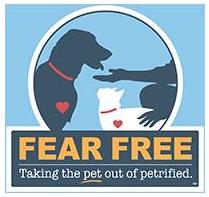
April 2013 – April is National Heartworm Awareness Month
Heartworm is a serious and potentially fatal disease primarily affecting dogs, cats and ferrets. It is transmitted by infected mosquitoes. Now is a good time to learn more about this disease and how to protect your pet year round.
How are heartworms transmitted?
An infected mosquito can spread the disease to your pet by just one bite. The heartworm larvae migrate through your pet’s tissues and enter the blood stream to the heart and pulmonary blood vessels where they can grow up to 12 inches and produce new microfilariae. Adult heartworms living in the heart and pulmonary (lung) arteries can cause heart failure and severe lung disease.
Are indoor pets safe?
Mosquitoes enter homes all the time, many times without us even noticing. They head for the warmest body 18 inches off the ground to bite, which can be your beloved pet. Therefore, it is vital that all pets be protected by preventives while indoors or outside.

What are the signs and treatment of heartworm disease?
In later stages as the heartworms develop, a dog may cough, become lethargic, have difficulty breathing and lose stamina. Cats may develop coughing and breathing difficulties resembling signs of feline asthma.
If detected early, heartworm disease in dogs can be treated. Your veterinarian must perform an annual blood test, even if the dog is on year-round prevention. Heartworm disease in cats is difficult to diagnose, and a single worm can prove deadly. Currently, there is no treatment for cats, and all the more reason to protect your cat by using year-round prevention.

How is heartworm disease prevented?
We recommend Revolution. This preventative is FDA approved and therefore the absolute safest product on the market, even if accidentally ingested. It rivals Frontline as it is the same price but actually protects cats against fleas, ticks and roundworms in addition to heartworm. Of course, reduced exposure to mosquitoes is also necessary, but do not use human mosquito repellants on pets.
Get more information:
Visit the American Heartworm Society website to learn more. We also offer an informative client handout in our office about this particular disease.
We endeavor to guide you every step of the way in helping you stay informed of the most up-to-date and accurate information regarding your pet’s health and well-being. Please don’t hesitate to call our office at 908-874-4447 if you notice symptoms or behavior changes in your pet that are cause for concern. We are here to help.
Belle Mead Animal Hospital, Your Other Family Doctors








